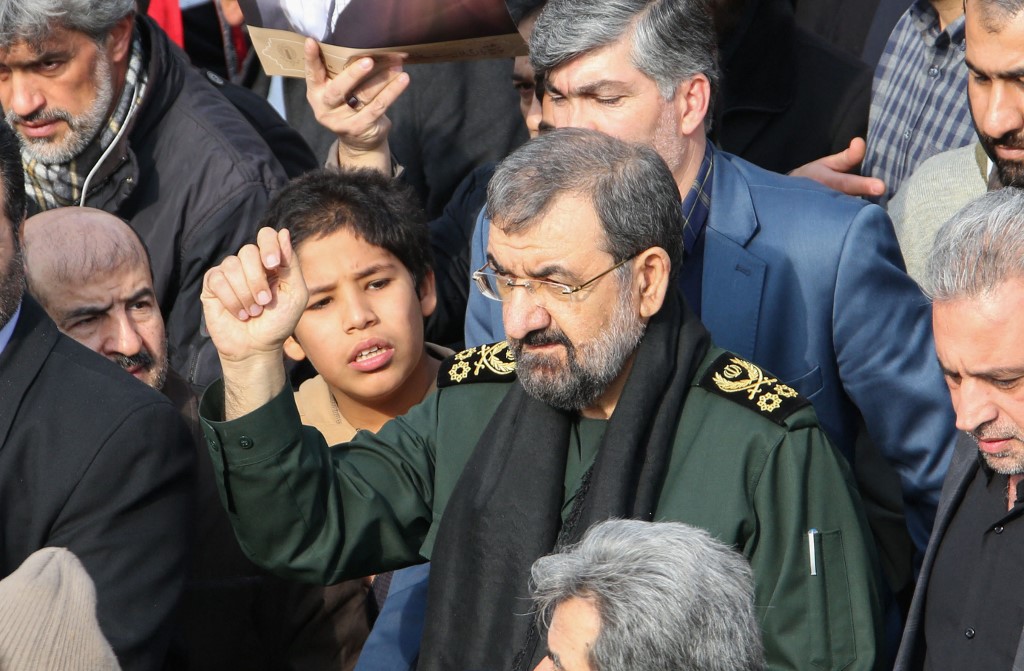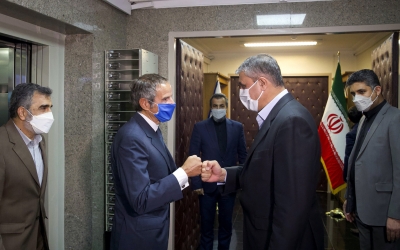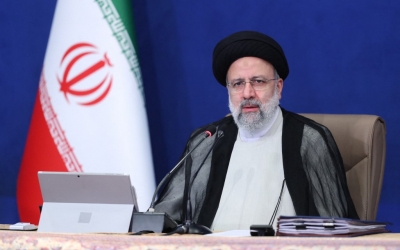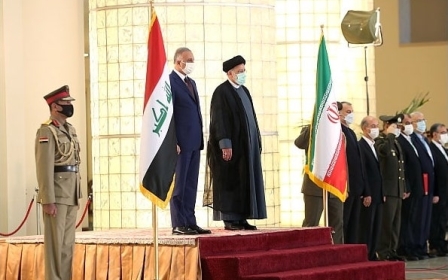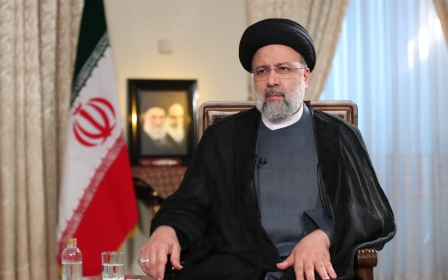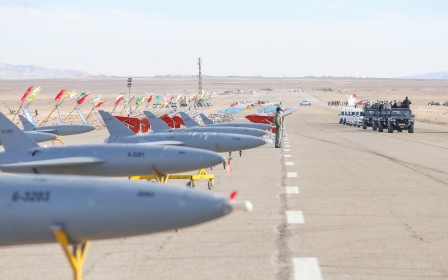Iran: Rival conservatives in Raisi government in struggle for power
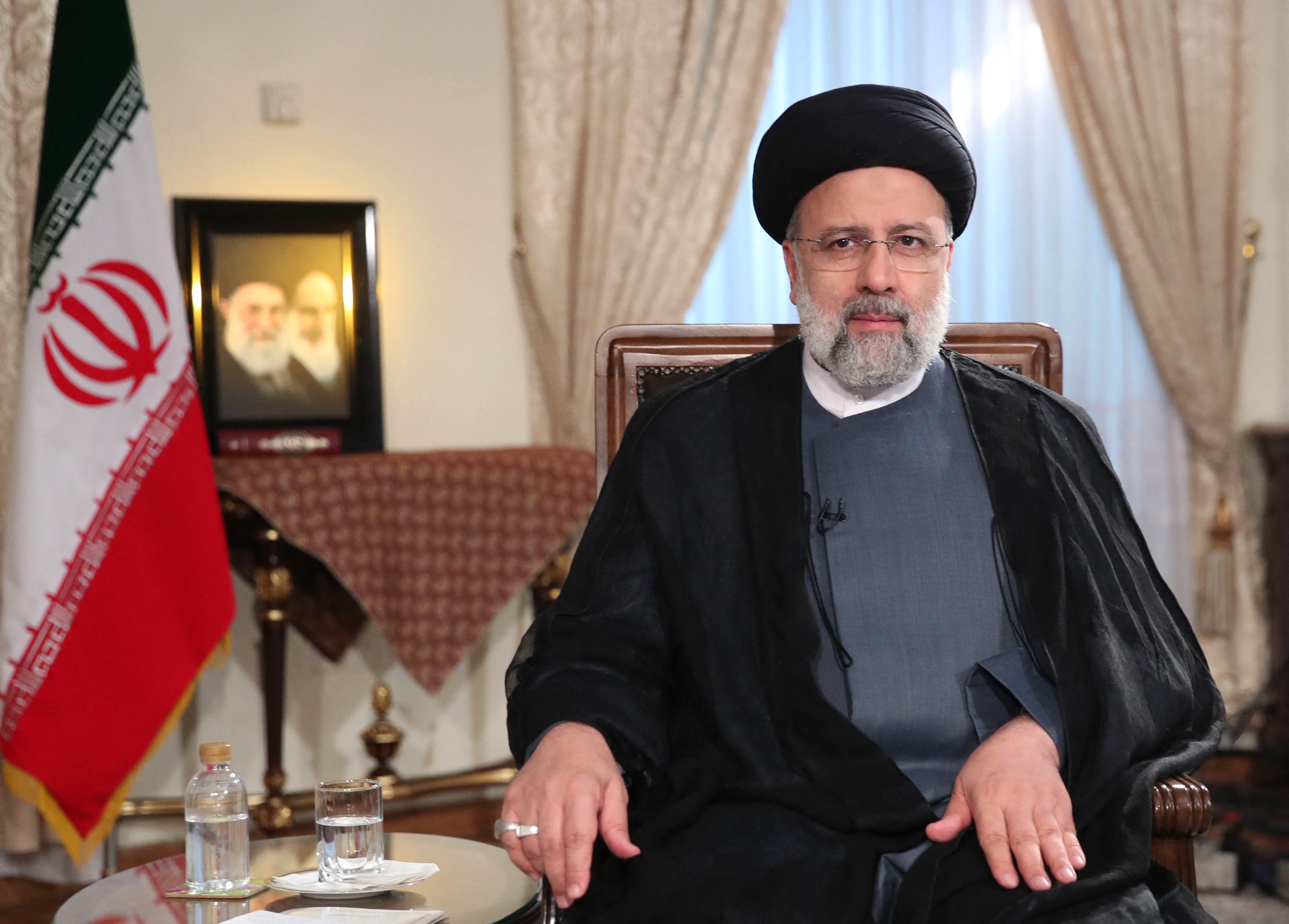
Despite his comfortable victory in June’s presidential elections, Iranian President Ebrahim Raisi is struggling to fill key positions in his new administration, as a number of influential conservative figures continue to jockey for power and influence.
This infighting among leading politicians has prompted the nascent administration to be described as a “government with four or five presidents”, while behind the scenes the hardline Endurance Front party looks to place its preferred candidates in important roles.
'Raisi and Mokhber had agreed on who to introduce for the ministries dealing with the economy. But all of a sudden, on the last day, Raisi changed his mind'
- Conservative politician
Tehran’s corridors of power are full of talk as lawmakers lobby for top jobs at the ministries of economic affairs, welfare, petroleum, industry, energy and agriculture, as well as that of Central Bank governor and the plan and budget organisation.
A source familiar with what is happening inside Raisi’s government told MEE that at first, former intelligence ministry economist Farhad Rahbar wielded significant influence and was charged with the task of “coordinating the economic team” of the new government.
Rahbar has been displaced, the source says, by Mohammad Mokhber, the first vice president and a “remarkable rival… who was backed by a group of powerful moderate conservatives” over the more hardline Rahbar. “Eventually, Mokhber won the game, putting Rahbar in a sulk,” the source said.
New MEE newsletter: Jerusalem Dispatch
Sign up to get the latest insights and analysis on Israel-Palestine, alongside Turkey Unpacked and other MEE newsletters
Clash of egos
As a result, Raisi put Mokhber, head since 2007 of the sprawling Setad conglomerate, which belongs to the office of Supreme Leader Ayatollah Ali Khamenei, in charge of coordinating his economic team.
“Raisi and Mokhber had agreed on who to introduce for the ministries dealing directly or indirectly with the economy,” a conservative politician told MEE. “But all of a sudden, on the last day, Raisi changed his mind.”
So far, so good for Mokhber, who holds a doctorate in international law and was personally appointed to his position at Setad by Khamenei. Then, a day before Iran’s new cabinet was announced, Raisi went back on his word.
Previously agreed appointments were jettisoned in favour of new names, including Hojatollah Abdolmaleki, a 40-year-old conservative politician described as an “inexperienced youngster” and who is now the welfare minister.
Mokhber was “fully opposed” to the appointment, the politician said, as Abdolmaleki “wasn’t suitable for chairing an important ministry”. The appointment has been widely questioned elsewhere.
The appointment on 25 August of former Iranian Revolutionary Guard Corps (IRGC) commander Mohsen Rezaee as vice president of economic affairs and head of the government’s economic headquarters raised eyebrows further.
In fact, there was some astonishment, as it is commonly thought that Rezaee and Mokhber are not able to get along.
One conservative journalist told MEE that: “We want this government to succeed but I don’t know how such big names are supposed to cooperate with each other. It’s like we have a government with four or five presidents at once.
“Mohsen Rezaee is a powerful figure and if not now, he will soon try to increase his own authority and power, and this will surely bring about disagreements with others such as Mokhber and Rahbar.”
'Right now, even the ministers are confused, they don’t know who they should listen to: Mokhber? Rezaee? Rahbar?'
- government source
The clash of egos got worse when Raisi attempted to mollify Rahbar, who was upset at not being able to advance his own plans in the administration. The conservative cleric appointed Rahbar as his aide on economic affairs.
Speaking on condition of anonymity, a source told MEE that Raisi’s appointments eventually resulted in Mokhber sulking.
The source continued: “Right now, even the ministers are confused, they don’t know who they should listen to: Mokhber? Rezaee? Rahbar? Or the powerful hardline groups who may try to unseat them in the parliament in the future.”
Currently, the source said, “Some of the ministers face a dilemma about who they should appoint as their deputies as Rezaee and other figures are telling them to appoint their own preferred choices. The ministers don’t know who they should obey.”
Meanwhile, an economic analyst told MEE: “Seriously, I don’t know how such an uncoordinated economic team is supposed to lead the country through one of the worst economic crises in Iran’s modern history.”
Endurance Front influence
Somewhere in the midst of these machinations is the Endurance Front, a hardline political group that wields considerable influence in Iranian politics.
Raisi was officially the favoured candidate of the group. Fearing its reputation in some parts of society, he sought to portray himself as independent in the June elections. But many still see Raisi as closely tied to the Front and, as a result, the party enjoys great influence in the new administration, with many of its people occupying key roles.
According to the source inside the new government, Abdolmaleki was Endurance Front’s preferred candidate for the welfare ministry. The group’s wishes won out over Mokhber’s opposition.
The source added that the Endurance Front was also seeking to put its own man into the top job at the intelligence ministry, but the group failed as Raisi’s inner circle was set on appointing veteran figure Esmail Khatib.
The appointment of Mokhber as first vice president was also opposed by the Endurance Front, which wanted its own man in the role. Following the removal of its intelligence ministry candidate, the hardline party launched an offensive against Mokhber and Khatib, who was head of the intelligence department of Iran’s judiciary for eight years.
In parliament, MPs close to the Endurance Front spoke out against the newly appointed intelligence minister, who despite his wealth of experience was described by the hardliners as too soft in the face of reformists.
Key foreign policy posts not filled
A few weeks after taking office on 26 August, Foreign Minister Hossein Amir-Abdollahian still hasn’t appointed his political deputy, who will lead the Vienna talks on reviving the Joint Comprehensive Plan of Action (JCPOA).
Iran signed the nuclear deal with the US, UK, France, Russia, China and Germany in 2015. The deal limited Tehran’s nuclear activities in return for the US lifting sanctions.
In 2018, then-US President Donald Trump pulled out of the deal, but the new administration of President Joe Biden is currently holding indirect talks with Tehran to restore it. Abbas Araghchi, a veteran diplomat and political deputy of former foreign minister Mohammad Javad Zarif, has over the past few months been negotiating the restoration of the deal.
According to the source familiar with Raisi’s government, internal conflict is once again the reason for Amir-Abdollahian not yet appointing a political deputy. “Currently, Araghchi and former hardline nuclear negotiator Ali Bagheri are among the main candidates,” the source said.
A foreign policy analyst told MEE: “If Aragchi remains in his place, we will witness a huge fight inside Raisi’s administration while at the same time, many in the hardline camp will be disappointed in Raisi, as his base is critical of the JCPOA and call it a treacherous deal.”
The analyst added: “If Bagheri occupies the position of Araghchi as the lead negotiator, this would be a negative signal for the talks, as he had inflexible positions when he was the deputy of former chief negotiator Saeed Jalili between 2007 and 2013.
“Even if Bagheri is named, there would still be plenty of disagreement, as Amir-Abdollahian would soon reach a standoff with him because he has a softer position compared to Bagheri.”
Middle East Eye delivers independent and unrivalled coverage and analysis of the Middle East, North Africa and beyond. To learn more about republishing this content and the associated fees, please fill out this form. More about MEE can be found here.


